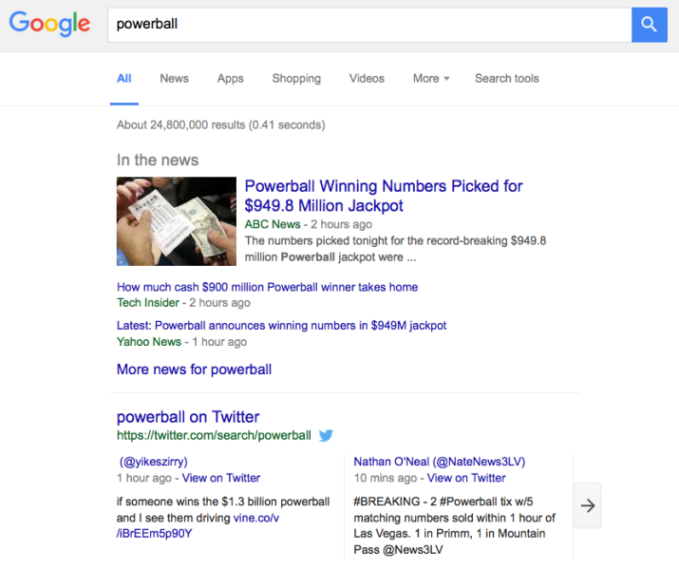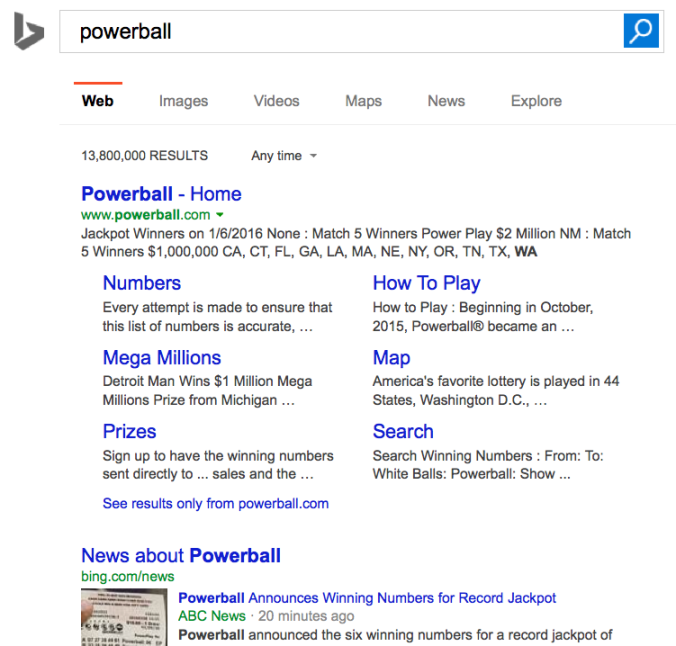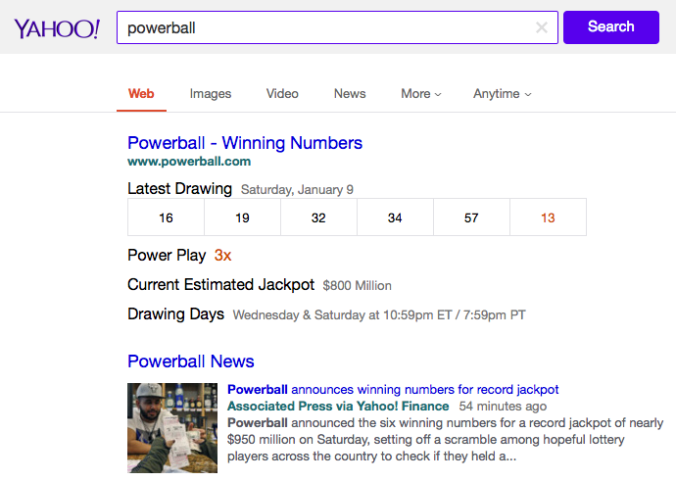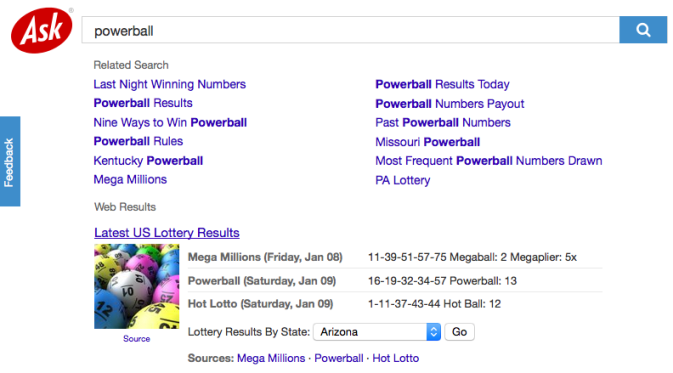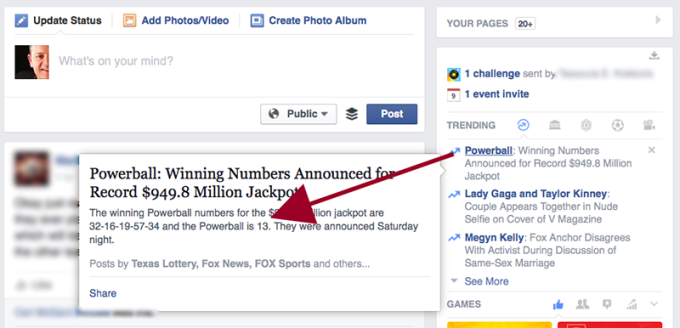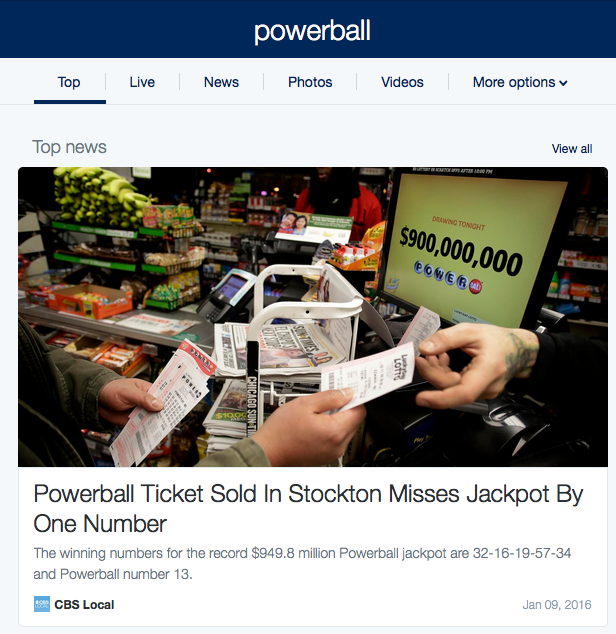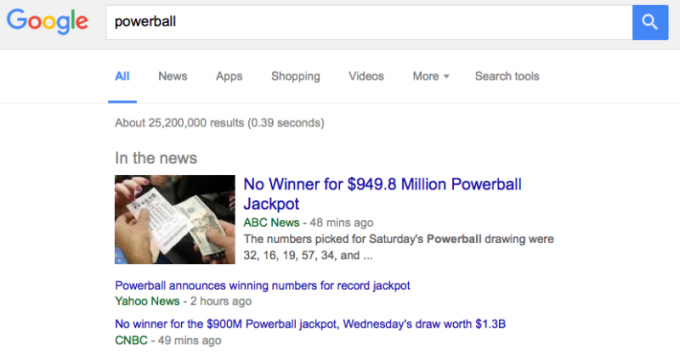With an estimated $950 million at stake, last Saturday was easily one of the rarest as it witnessed millions of Americans waiting anxiously for the declaration of the winner of one of the biggest Powerball lotteries drawn in the history of US. People swarmed search engine domains to possibly get a look at the winning entry, as the online search activity touched a new high.
Millions of Americans got themselves hooked onto various search engines such as Google, Bing, Yahoo, Ask.com, Facebook and Twitter to know if they had the winning entry or not. This resulted in Google Trends showing a huge upward curve in terms of searches, particularly for the term “Powerball”. But did these searches really help them in finding out who the lucky winner was? Let’s see what it was like.
Three hours into Google searching but it didn’t reveal any answers. Instead, it showed Google News Onebox and the Twitter carousel showing tweets that had the term “Powerball”.
When analyzing Google’s SERPs, the first entry showed ABC News headline that appeared to be cut-off before the winning number could show up. If that snippet would have been a bit longer then we could have said that Google did show the winning numbers. If you scroll down and click the Powerball web link, then the snippet does have the winning numbers. Overall, we can say that Google did show the winning numbers on page one of its search results.
Bing
In comparison to Google, Bing searches didn’t include an answer box to display the winning numbers. But like in Google searches, you’ll be able to find the winning numbers on page one of the search result snippets just below the fold. Above the fold, Bing displays the Powerball web link along with its News result pack.
While Google and Bing got it wrong with respect to the placement of the winning numbers, Yahoo and Ask.com surprisingly were right on the button. Here’s how.
Yahoo
Yahoo search did show the winning numbers right at the top of page one of the search results. Since the estimated jackpot figure kept changing throughout the day, we can ignore Yahoo’s fault on that count.
Ask.com
Alongside Yahoo searches, Ask.com came out with a result showing the winning numbers of Powerball. Besides that, DuckDuckGo showed pure organic results sans any links and they were even less helpful than Google and Bing.
Social Media sites did well in comparison
Surprisingly, where many top search engines failed to do the needful, social media sites like Facebook and Twitter were quite handy in revealing the winning entry. Here’s how.
The no.1 ranked Social Media site listed Powerball as one of the top trending stories. The trending box didn’t reveal the winning numbers but hovering on the Powerball link did open a window with the winning numbers inscribed inside along with a longer description.
The process here may not be as convenient as other search engines like Yahoo or Ask.com, but it also didn’t require any scrolling or clicking as such.
Like Facebook, Powerball was one of the top trending stories on Twitter. And when the term Powerball was searched across its search domain, it revealed a tweet that included what we were after i.e. the winning numbers.
When the term Powerball was searched for again, after an interval of 30 mins., the winning numbers tweet was replaced by some other tweets that didn’t contain the winning numbers. But initial Twitter searches did show the winning numbers; especially when it was one of the hot subjects.
Still searching on Google & Bing
Google and Bing domains were searched again but they served the same results sans winning numbers. Of the two, Google search did come up with the right answer by displaying five of the winning numbers in its snippets, as seen below.
This somehow spoils the credibility of both Google and Bing search engines, who are ranked as the top two search engines of the virtual world.
For more info, write to us at sales@ebrandz.com.



